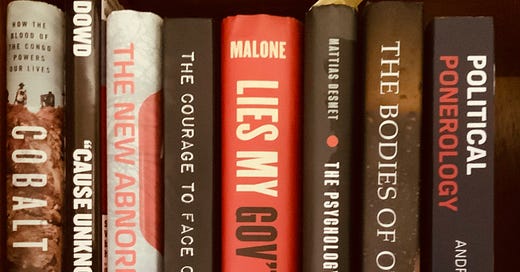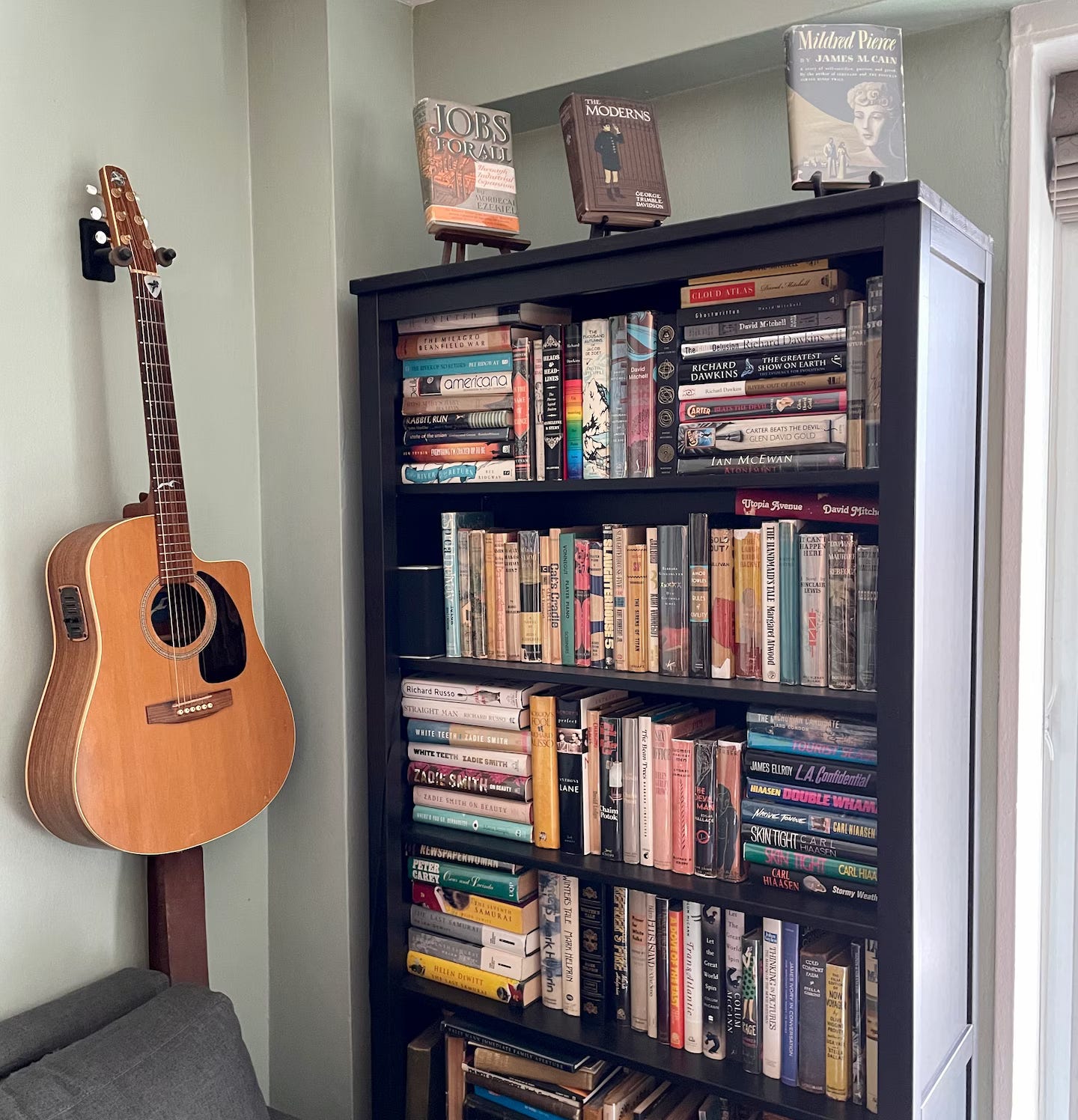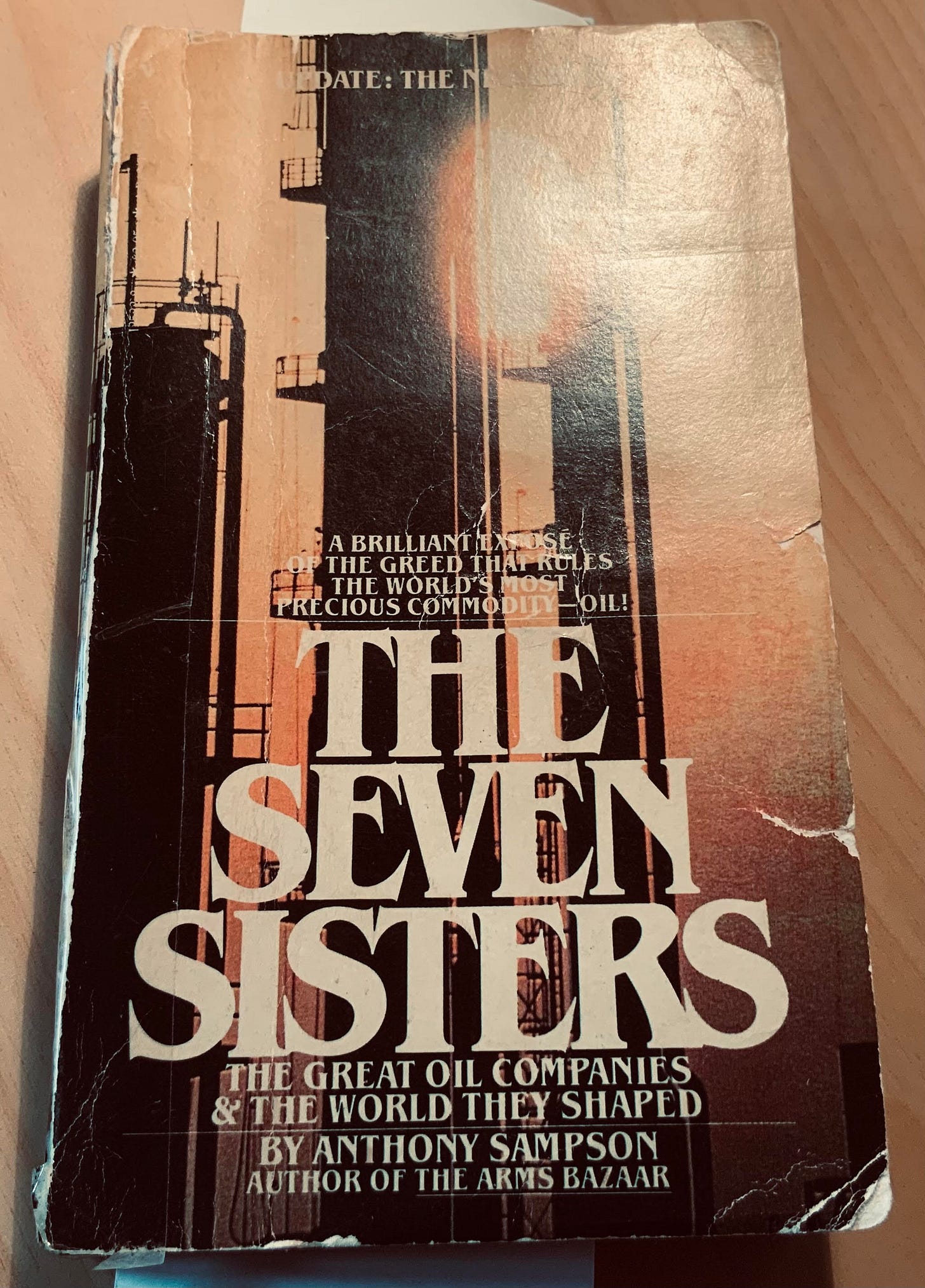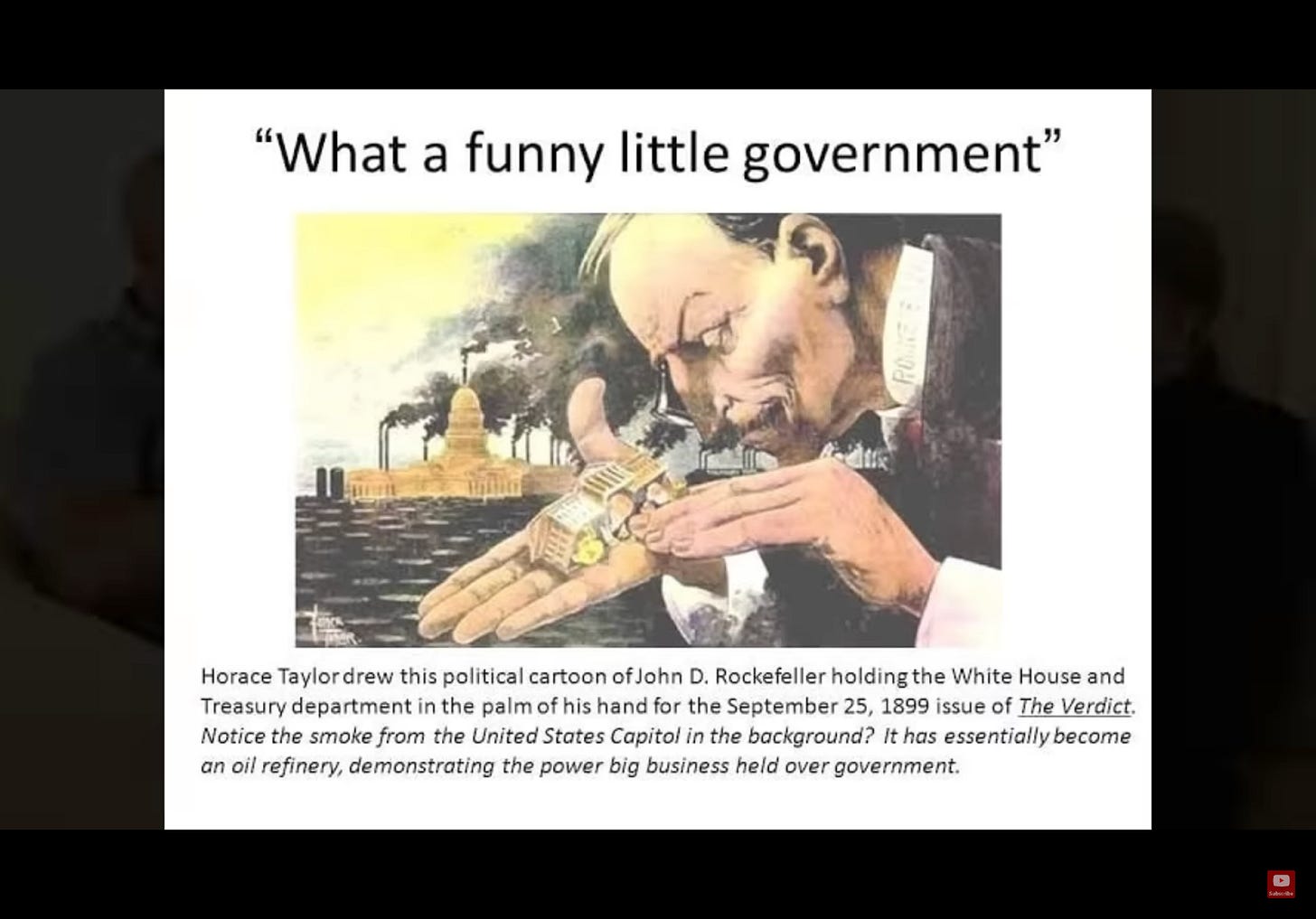"This book might come in useful one day..."
Some musings on coping strategies, reading and re-arranging.
McLauchan and many others have observed the anti-intellectualist environment that is New Zealand. Maybe this is why I’ve been very reluctant to give away/sell any of my books in the ten years since I moved here - in fact, I’ve gained dozens instead. I admit, I’m a bit of a hoarder now, when it comes to books, living as we are between the pages of Fahrenheit 451.
Physical books - that unique smell and feel - have taken on new meaning. Maybe that’s because it’s difficult to forget the shared trauma of 2021-22 when so many of us were locked out of our local public library and from University campus facilities:
And because a good, secondhand book store is unfortunately such a rare find in NZ, (and eBay isn’t really a viable option with increasingly high shipping costs) I thank God for our national treasure that is Trademe.
I saw this interesting article in the Washington Post recently about How to Organize Your Books - which has some lovely images to inspire your inner interior-designer like this one:
…Which encouraged me to think about what my own ‘Billy’ might be missing in terms of genre. Well, it is history.
And with relevant covid-era history in mind, I want to put a shout out here to the wonderfully-articulate Ivor Cummins, for this excellent interview (2 hours total but cleverly split into 4 coherent segments) with Dr. Jacob Nordangard, about his book (another one to order!) about the Rockefellers.
Having recently read Anthony Sampson’s 1975 classic “The Seven Sisters” about the history of Rockefeller’s oil monopoly, this conversation and Jacob’s book seems like a sensible progression:
As Charles Malet stated on a recent Delingpod, everyone is in various stages of ‘waking-up’ to this horror story. And having never studied history to any depth (other than in the context of British Educational History and my research interests), I need to catch-up. And of course the Rockefeller’s monopoly is tightly entwined with the development of our educations systems, not least the medical schools therein which are complicit in the fraud.
BTW Ivor Cummins was one of the cast of characters I met during the THiNK TWICE experimental online gathering, outcomes of which are very valuable and Abir Ballan brilliantly explains them here:
Ivor’s recording includes some useful slides, including WHO/WEF historical events and political cartoons like this one from (can you believe it?) over 120 years ago:
Full of very insightful reflections, Ivor’s interview with Jacob is essential viewing for everyone, along with references Ivor links to, including Sheryl Attkisson’s TEDx talk about Fake Media Messages. This context really is essential in our attempts to fit the sociological pieces of the jigsaw together. (And by the way, her latest book ‘Slanted’ is also on my reading list).
So while I join with other community-groups learning to prepare for whatever it is that’s coming, maybe it’s good to embrace some displacement behaviours?
Yup, some kinds of displacement activities have been proven to positively reduce stress and anxiety and bookshelf-cleaning is one of them!
Alongside washing ceilings, sorting out cutlery drawers and compiling long lists of non-perishable foods for the potential lockdown/apocalypse, I have been re-arranging all my bookshelves, into what (now) seem like sensible covid-era themes. Here’s my most positive one!
Happy re/organising and happy reading!










Heinrich Heine famously said: 'Where they have burned books, they will end in burning human beings.'
In the digital era, the act of 'burning books' has never been easier and therefore more prevalent.
We also don't call it burning a book and instead use the somewhat benign sounding: "deplatforming".
Whatever terminology used nowadays though, Heine's statement still holds true.
Those who deplatforming/censor ideas, thought and speech will not hesitate to also deal directly with the purveyors of said ideas, thought and speech.